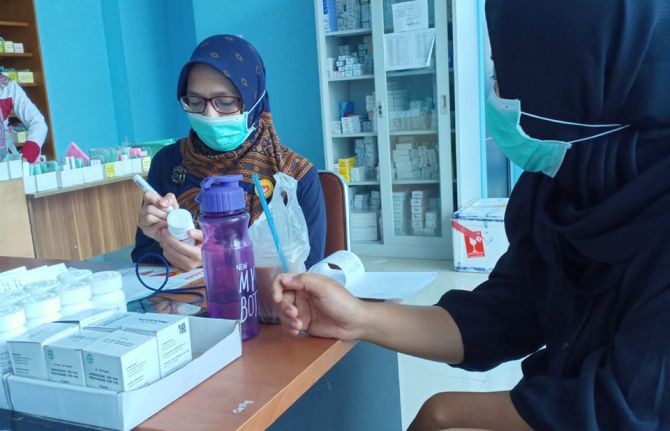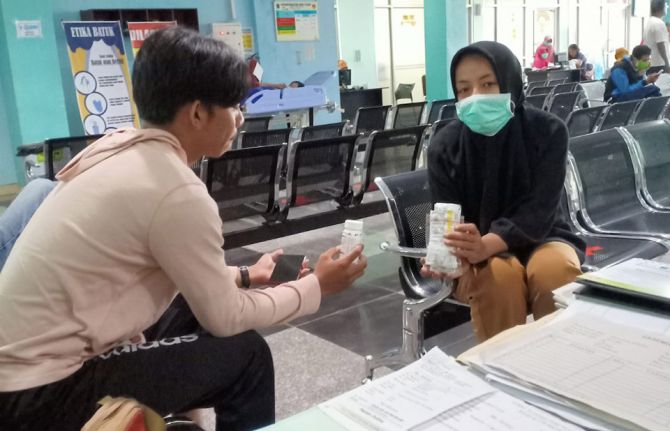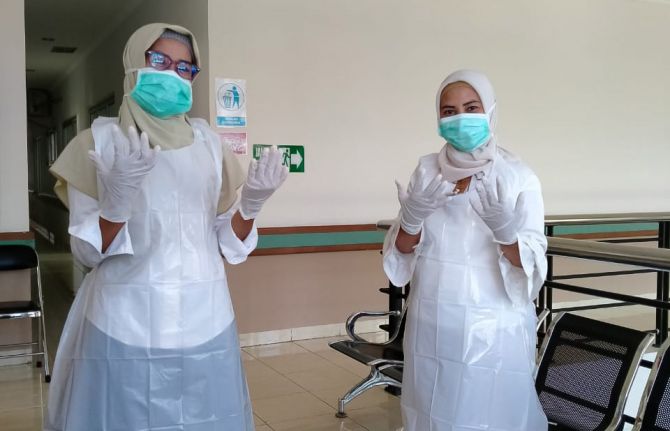



Feature Story
“The concern did not just come from the community, but also the health workers”
01 May 2020
01 May 2020 01 May 2020After the 2018 earthquake struck Lombok, in West Nusa Tenggara, Indonesia, the destruction it caused closed most health facilities. Among those affected were people living with HIV, who could no longer access their HIV treatment. Then, Yayasan InSET, a civil society organization in the province, stepped in, teaming up with health facilities in the area and taking on the role of delivering antiretroviral therapy to people in need. Today, the COVID-19 pandemic is threatening to do what the earthquake did to access to HIV treatment, and Yayasan InSET is ready to step in again.
Many people living with HIV in West Nusa Tenggara and in the rest of the country are acutely concerned about the possibility of disruption to HIV services and not being able to access antiretroviral therapy, owing to overburdened health facilities or the possibility of lockdowns. A recent rapid survey of 1000 people living with HIV conducted by the Positive Indonesia Network found that more than 41% were extremely anxious about COVID-19, with more than 36% worrying about their ability to obtain their HIV treatment.
“In West Nusa Tenggara, there are more than 500 people living with HIV on treatment who are worried about being unable to go to a clinic to access antiretroviral therapy,” said Himawan Afrian, the head of Yayasan InSET.
Yayasan InSET’s experience of working with hospitals and health centres after the earthquake has left it ready to help out in the COVID-19 outbreak. “Some health facilities actually contacted us a couple of weeks ago to ask for our help. The concern did not just come from the community, but also the health workers. Initially they asked us to raise awareness about COVID-19 prevention to our communities. Now we are working out the arrangements for us to take over the delivery of antiretroviral therapy should the situation worsen,” said Mr Afrian.
Having a close collaboration with the health services has been a big help for Yayasan InSET ensuring that people living with HIV are not left behind during the COVID-19 pandemic. Its direct advocacy has ensured that people living with HIV in the province receive a two-month supply of antiretroviral therapy. The organization has also successfully lobbied the authorities to move the HIV clinic away from the hospital, so people can swiftly pick up their medicines without entering the overcrowded clinics in the hospital, and has successfully advocated to the authorities in Mataram for the provision of food packages for sex workers and people living with HIV for six months.
During emergencies, whether pandemics or earthquakes, collaboration and local solutions are key to ensuring that there is as little disruption as possible to services for people living with HIV.



